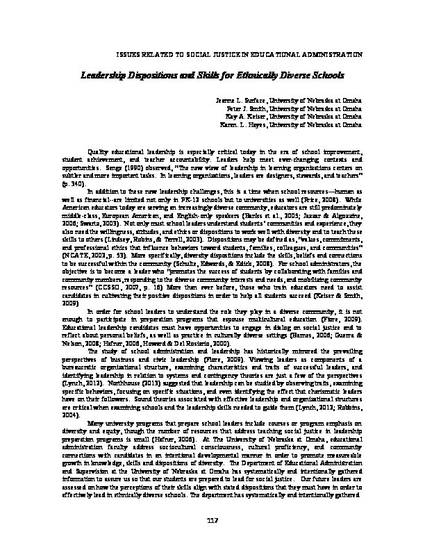
Quality educational leadership is especially critical today in the era of school improvement, student achievement, and teacher accountability. Leaders help meet ever-changing contexts and opportunities. Senge (1990) observed, “The new view of leadership in learning organizations centers on subtler and more important tasks. In learning organizations, leaders are designers, stewards, and teachers” (p. 340).
In addition to these new leadership challenges, this is a time when school resources—human as well as financial--are limited not only in PK-12 schools but to universities as well (Price, 2008). While American educators today are serving an increasingly diverse community, educators are still predominately middle-class, European American, and English-only speakers (Banks et al., 2005; Jazzar & Algozzine, 2006; Swartz, 2003). Not only must school leaders understand students’ communities and experience, they also need the willingness, attitudes, and ethics or dispositions to work well with diversity and to teach these skills to others (Lindsey, Robins, & Terrell, 2003). Dispositions may be defined as, “values, commitments, and professional ethics that influence behaviors toward students, families, colleagues, and communities” (NCATE, 2002, p. 53). More specifically, diversity dispositions include the skills, beliefs and connections to be successful within the community (Schulte, Edwards, & Edick, 2008). For school administrators, the objective is to become a leader who “promotes the success of students by collaborating with families and community members, responding to the diverse community interests and needs, and mobilizing community resources” (CCSSO, 2007, p. 16) More than ever before, those who train educators need to assist candidates in cultivating their positive dispositions in order to help all students succeed (Keiser & Smith, 2009).
Available at: http://works.bepress.com/jeanne_surface/6/

Published in The 2012 Yearbook of the National Council of Professors of Educational Administration. © 2012 by National Council of Professors of Educational Administration. Used by permission.